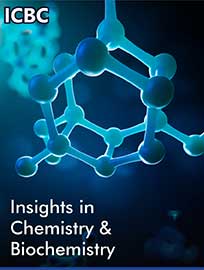 Mini Review
Mini Review
Protective Effect of Betaine on Health: A Brief Review
Fatma Sengul1* and Husamettin Vatansev2
1Department of Biochemistry, University of Adiyaman, Turkey
2Department of Medical Biochemistry, University of Selcuk, Turkey
Fatma Sengul, Department of Biochemistry, University of Adiyaman, Central Classroom C Block floor:3 Postal code:02040 Adiyaman, Turkey.
Received Date: December 30, 2021; Published Date: January 21, 2022
Abstract
Betaine, a choline metabolite, is an important component with its role in osmoprotectant and homocysteine metabolism in the body. Its importance has increased as a result of the understanding of its deficiency in the body and the emergence of its healing properties on some diseases with betaine supplementation. This peper provides a quick overview of the physiological functions of betaine and its protective effects on diseases.
Keywords: Betaine; Health; Choline
Introduction
Betaine, called trimethylglycine, was first obtained from the plant Beta vulgaris. It can be taken with diet (from consumption of beets, wheat cereals, seafood, and spinac) as well as it is formed in the body as a metabolite of choline, which is synthesized endogenously by the choline oxidase enzyme in the liver and kidney [1]. It has many important functions in the human body. With its osmoprotectant role, it supports cells to maintain their normal volume and osmolarity. It plays a role in the methionine cycle (transmethylation) as a methyl donor for the enzyme Betaine homocysteine-S-methyltransferase. In addition, it has a chaperone effect because it provides protection against protein denaturation from substances such as urea and sodium chloride in high concentrations in the kidney medulla, and it is also called chemical chaperone [2,3].
With its anti-inflammatory properties, betaine is effective against many inflammatory diseases such as diabetes, non-alcoholic fatty liver disease and such as Tumor necrosis factor-α (TNF-α), interleukin-6 (IL-6), IL-23, IL-1β. It is stated that it contributes by reducing the release of proinflammatory cytokines. There is also an anti-inflammatory effect with the inhibition of transcription factor nuclear factor-κB (NF-κB), one of the pathways related to inflammation [4,5]. In vivo studies have shown that it regulates TNF-α release in liver macrophages by inhibiting prostaglandin synthesis [6]. In clinical studies, decreased urinary betaine levels have been reported in ulcerative colitis and Crohn’s disease [7]. In experimental animal studies of autoimmune encephalomyelitis model, it was concluded that the severity of clinical findings decreased and symptoms improved in betaine-treated mice. It is thought to exert its effect by inhibiting the release of interleukin-6 secreted by dendritic cells, which is one of the immune system complements [6].
Conclusion
As a result, betaine levels in the body decrease in autoimmuneneurodegenerative diseases such as multiple sclerosis, cardiovascular and cancer, and some diseases that affect homocysteine and folate metabolism [8] and betaine supplementation may be a potential agent to improve the process with different mechanisms of action on these diseases. Especially in autoimmune diseases such as MS, where there are no therapeutically effective treatments, and in conditions such as Alzheimer’s, understanding the protective role of betaine and making a clinically meaningful intervention such as reinforcement will be promising. More in vivo and clinical studies should be conducted to evaluate the results, and attention should be paid to the protective effect of betaine in terms of human health by considering its physiological functions.
Conflict of Interest
The authors declare no conflict of interest.
Acknowledgement
None.
-
Fatma Sengul, Husamettin Vatansev. Protective Effect of Betaine on Health: A Brief Review. Insi in Chem & Biochem. 2(1): 2021. ICBC. MS.ID.000529.
-
Betaine, Biochemistry, Choline, Tumor Necrosis Factor-α, Interleukin-6, Proinflammatory Cytokines, Encephalomyelitis.
-

This work is licensed under a Creative Commons Attribution-NonCommercial 4.0 International License.






